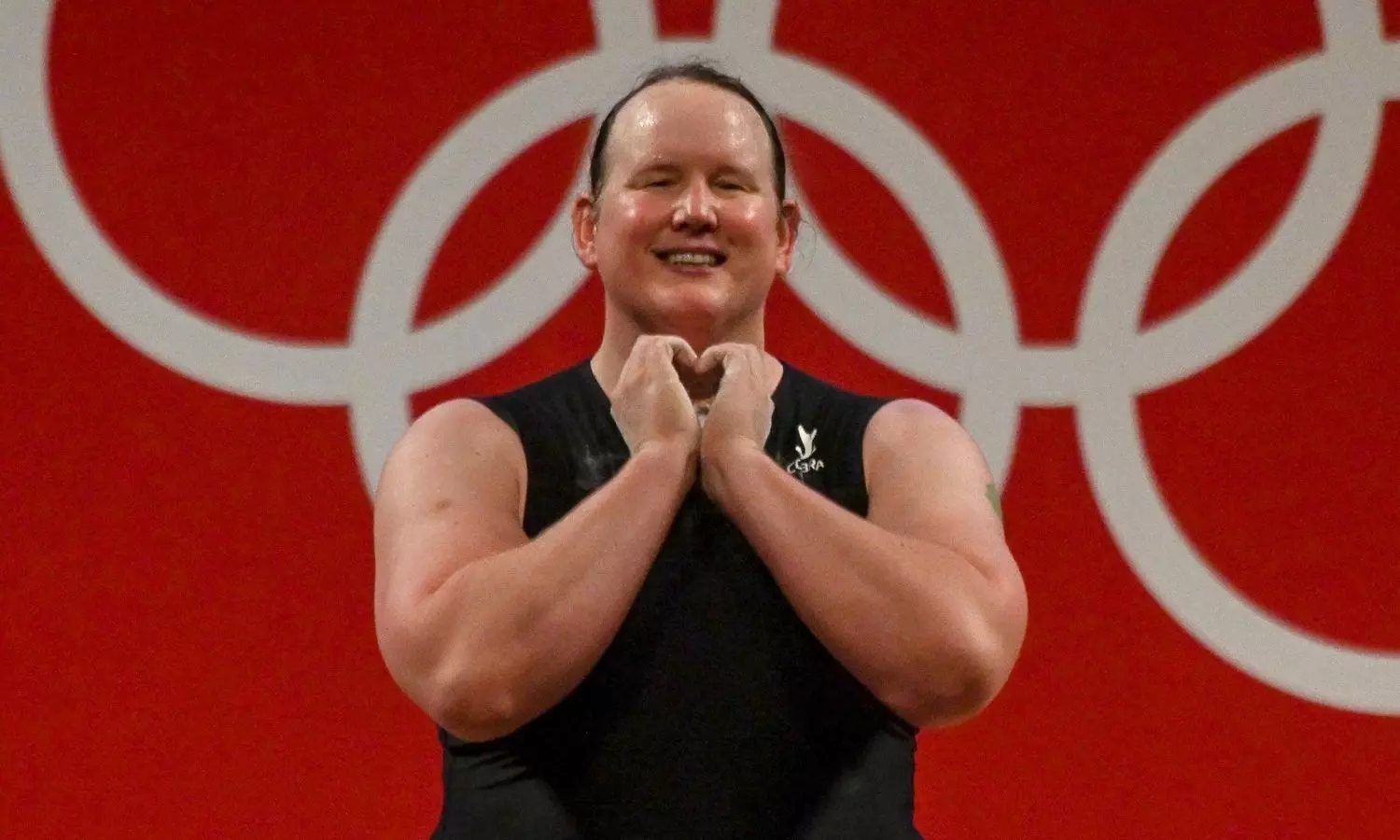Tokyo 2020
How trans-athletes revolutionised the Tokyo Olympics
The Tokyo Games saw the participation of transgender and non-binary athletes for the first time ever in the history of the Olympics

The Tokyo Olympics has been historic on various different levels.
Firstly, it was conducted amidst a raging covid-19 pandemic which threatened to mutate with the congregation of thousands of athletes, coaches, officials, volunteers and organisers in Tokyo.
Secondly, there have been talks about mental health. Thanks to the brave decision of gymnast Simone Biles during the women's team final, more and more people have started talking about the unrealistic expectations fans have from athletes and how it adversely affects a sportspersons mental health.
Thirdly, it was the first gender-balanced Olympic Games in history. Yes, the first since the tradition of modern Olympic Games were started in the year 1896 in Athens, Greece.
Fourthly and most notably, the Tokyo Games saw the participation of transgender and non-binary athletes for the first time ever in the history of the Olympics.
While the International Olympic Committee (IOC) introduced its first guidelines for the inclusion of trans-athletes in the Olympics way back in the year 2004, it was not until the Tokyo Olympics that we saw trans-athletes for the first time in the world's biggest sporting spectacle.
Three trans-athletes or non-binary athletes – New Zealand's weightlifter Laurel Hubbard (she/her), Canada's footballer Quinn (they/them), and the USA's skateboarder Alana Smith (they/them), were seen competing across various events in the Tokyo Olympics. Besides, Chelsea Wolfe (she/her) was also present in Tokyo as an alternate BMX Freestyle athlete in the American contingent for the Games.
It was a truly remarkable Olympics as Quinn (who goes only by the first name) even went on to become the first-ever transgender or non-binary Olympic medallist when they bagged the gold medal in women's football for Canada at the Yokohama international stadium.
As one would expect, all these athletes faced immense criticisms from various quarters, including athletes themselves, for hijacking the women's events and having an unfair advantage without any proper evidence for the same.
They were trolled and abused brutally on social media but managed to rise above all the hate directed at them with some decent performances in Tokyo.
While the other two athletes too faced the ire of sports fans, the one who found herself in the centre of the controversy was the Kiwi trans-woman weightlifter, Laurel Hubbard, who lived 35 years of her life as a man.
There was a lot of dirt thrown around her by fellow competitors, who termed her participation 'unfair to sports and athletes'. Even though Hubbard failed to register anything noteworthy in women's +87kg division, the hate she has been receiving has not stopped.
Her fellow competitors who finished on the podium refused to comment about Hubbard in a post-event presentation, while she was verbally abused and termed a 'scum' on a Russian television channel.
Yes, that's how far things have gone down.
If there are people who troll and abuse, then there are people who support the inclusion of trans-athletes in the Olympics as well. Encouraging messages have outpoured for Hubbard and others from people who believe this inclusion is necessary in sports.
While people still continue to accuse trans-athletes of having an unfair advantage, the counterpoint remains that they have met all the criteria set by the IOC to compete in the Olympics.
"Laurel has met every single requirement to participate for years; she has no inherent advantage and has worked hard just like every single other athlete to make it to the Olympics," said Anne Lieberman, who has worked closely with weightlifter Laurel Hubbard, to The Bridge.
In an e-mail conversation, Lieberman alleged that the criticisms against the inclusion of trans-athletes are just mere distractions from the challenges and abuse faced by women in sports.
"It breaks my heart that the conversation around protecting women's sports has become code for excluding and targeting trans-women and girls. This is a distraction from the real and documented challenges and abuse women face in global sport - like equal pay, lack of sponsorship opportunities and funding, sexual abuse and harassment," she said.
Anne Lieberman maintained that sports could be fair with the inclusion of athletes from every community if the guidelines laid down by the IOC are followed to the hilt.
"We should not allow hate groups to insert themselves for political gain. The bottom line is that sports can be safe and fair without excluding anyone, and we are a better and stronger global sports community when we are inclusive," Lieberman explained.
Despite the Tokyo Olympics drawing to a close, the debate surrounding the inclusion of trans-athletes in sports continues to rage on, and it is not expected to have curtains drawn anytime soon.
While these debates surely will not stop for a long, long time, one thing which has been certain is that the participation of trans and non binary athletes at the Tokyo Olympics has surely revolutionised the future of sports.
